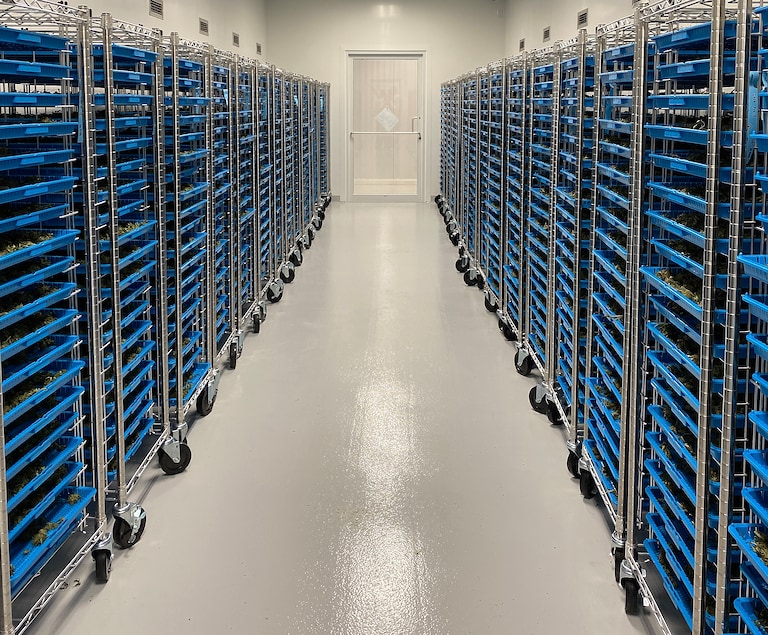Drying





What to Take Into Consideration
Ammonia-like odor is often a sign that your drying room is lacking air circulation and humidity control.
Research how your
regional climate impacts the drying process, such as your elevation and
seasonal changes.
Install drying products that are durable and resistant to oxidation to ensure plant safety.
Basics
of Drying
The Key to Producing
High-Quality Cannabis Products.






Friction
Depending how much handling is involved in your drying process, too much friction will impact the quality of your buds.
Temperature
The temperature of the enviornment is a vital
ingredient of a highly-effective
drying process.
Lighting
Temperature is also affected by the room's lighting. Exposing your buds to UV light rays can damage them if not monitored closely.
Humidity
The humidity in the room plays a pivotal role in drying out buds. While too much moisture can negatively impact the result, so can a room that is too dry.
Air Circulation
Circulating the air in the drying room helps maintain a consistent enviornment for your product.
Sanitation
Keeping your drying room sanitary at all times is a critical component in safely producing cannabis products. A drying and manicurring room is very much like a kitchen.
How you dry and cure your plants can significantly impact various characteristics of the final product, such as potency, preservation period length, and smoke flavor and quality. There are a variety of drying methods and products that can be adapted to your specific needs, such as racks for either tray or hang drying. The drying products you choose and how you control your drying room's temperature and humidity should be closely monitored and adapted to find the perfect combination. Aside from the quality of your plants, this will ensure your buds are safe and free from contamination.

